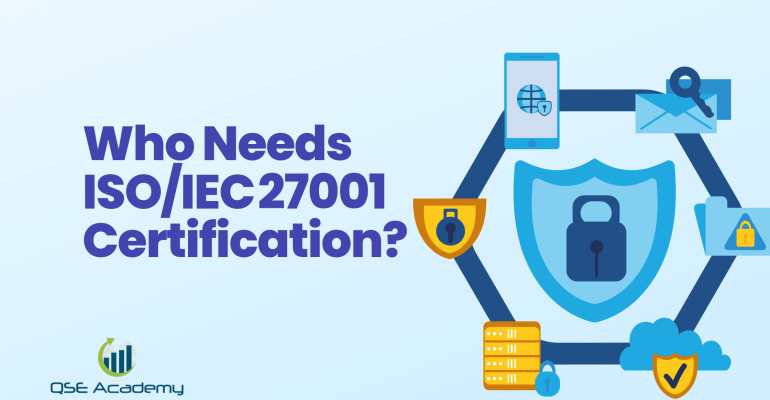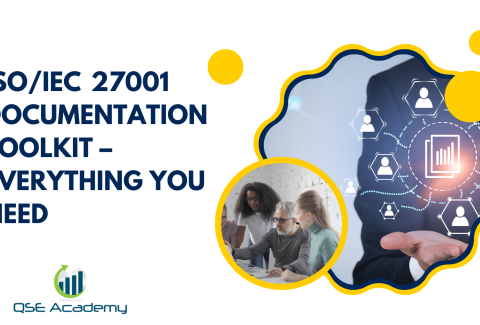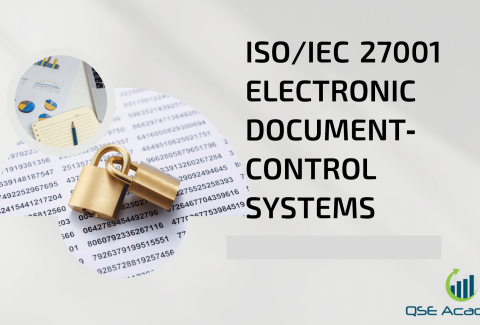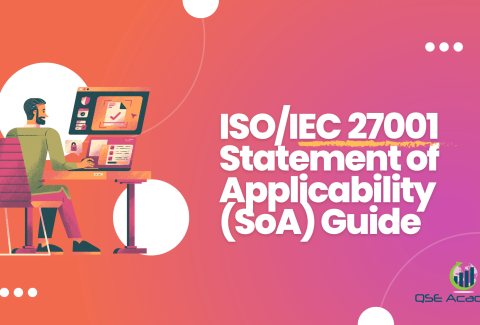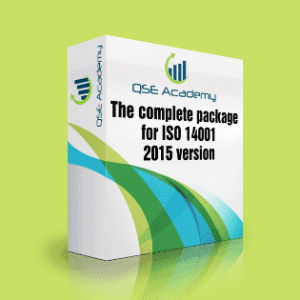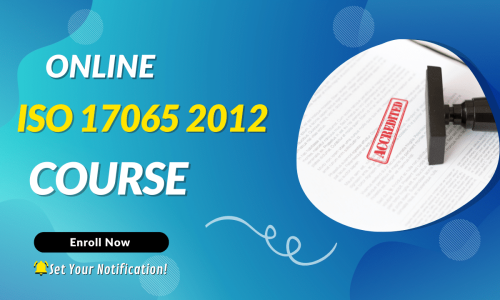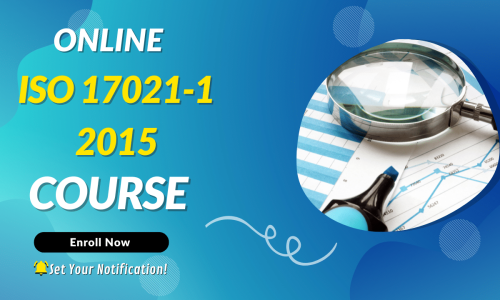Who Needs ISO/IEC 27001 Certification?
Last Updated on December 23, 2025 by Hafsa J.
Introduction
ISO standards can feel like a maze, and ISO/IEC 27001 is no exception. Many organizations wonder whether certification is something they truly need, or if it only applies to large corporations and highly regulated industries. The truth is, ISO 27001 certification is not just a “compliance badge.” It’s a powerful framework that proves an organization takes information security seriously—something increasingly demanded by customers, partners, and regulators alike.
This article will cut through the uncertainty and explain exactly who benefits most from ISO 27001 certification. You’ll see how it applies across sectors like healthcare, finance, technology, supply chains, and even fast-growing SMEs. Along the way, we’ll highlight why some organizations can’t afford to ignore it, and how certification can become a competitive advantage instead of a checkbox exercise.
By the end, the picture will be clear: you’ll know whether ISO 27001 certification is essential for your organization, and how it fits into a long-term security and trust strategy.
What ISO/IEC 27001 Certification Means in Practice
At its core, ISO/IEC 27001 certification confirms that an organization has built a structured Information Security Management System (ISMS). This isn’t just about having firewalls and passwords—it’s about proving that information risks are identified, managed, and continually improved in a systematic way.
Certification shows three things very clearly:
-
The organization understands its security risks.
-
Controls are in place to protect information from misuse, loss, or breaches.
-
There is a cycle of monitoring, reviewing, and improving those controls.
What Certification Demonstrates
| Area | What Certification Confirms | Example in Action |
|---|---|---|
| Risk Management | Risks to information are identified and prioritized. | A financial services firm mapping out threats like phishing and insider fraud. |
| Governance | Clear roles, policies, and responsibilities are in place. | Company-wide information security policies signed off by leadership. |
| Controls | Technical, physical, and procedural safeguards are applied. | Secure server access, supplier checks, data encryption. |
| Ongoing Improvement | Security is continuously reviewed and updated. | Regular audits leading to improved incident response processes. |
Why It Matters
ISO 27001 certification isn’t a one-time exercise. It demonstrates to clients, regulators, and business partners that information security isn’t handled ad hoc—it’s embedded in how the organization operates. For many, it becomes a passport to new markets and larger contracts, since customers can trust that their data will be safe.
Organizations That Handle Sensitive or Regulated Data
Some industries deal with information that is considered highly sensitive—medical records, financial data, government information, or communications infrastructure. For these organizations, ISO/IEC 27001 certification is more than a best practice; it’s often a regulatory expectation or a contractual requirement.
Sectors Where Certification Is Critical
| Sector | Why ISO 27001 Matters | Example |
|---|---|---|
| Healthcare | Protects patient records and supports compliance with HIPAA, GDPR, or national data protection laws. | A hospital ensuring electronic health records are secured against breaches. |
| Finance & Banking | Safeguards transactions, customer data, and payment systems. | A fintech startup proving to investors and regulators that client funds and data are protected. |
| Telecom & Utilities | Secures large volumes of customer data and critical infrastructure. | A telecom provider securing billing and customer service platforms. |
| Government Contractors | Meets strict data handling rules for defense or public sector projects. | An IT provider bidding for contracts with defense agencies. |
Insight
Relying on industry-specific compliance frameworks alone (like HIPAA or PCI DSS) can give a false sense of security. These frameworks may cover specific legal requirements, but ISO 27001 provides a recognized global framework that assures stakeholders everywhere—not just regulators—that security is being managed systematically.
Companies in Technology and Cloud Services
Technology companies, especially those delivering cloud-based services, SaaS platforms, or hosting solutions, face constant scrutiny from clients about how securely they handle data. For these organizations, ISO/IEC 27001 certification is often the deciding factor in winning or losing enterprise contracts.
Why It’s Essential in Tech
-
Trust Signal for Clients – Certification reassures customers that their data will be handled securely, even across complex cloud environments.
-
B2B Contract Requirement – Large enterprises and government clients frequently require ISO 27001 from vendors before signing agreements.
-
Global Market Access – Certification simplifies compliance discussions when entering new regions with strict data protection laws.
Example in Action
A SaaS startup aiming to serve enterprise customers might have strong technical security but no external validation. By achieving ISO 27001 certification, the company can show a structured, auditable system for protecting client data. This proof often tips the balance during vendor selection, where buyers weigh multiple providers.
In a sector where data breaches can destroy credibility overnight, ISO 27001 becomes not just a badge of compliance but a competitive advantage.
Businesses in Global Supply Chains
For organizations that act as suppliers—whether in manufacturing, logistics, or services—ISO/IEC 27001 certification is increasingly becoming a gateway requirement. Large corporations often expect their partners and vendors to demonstrate mature information security practices, and certification is the most recognized way to prove it.
Why Supply Chain Players Need ISO 27001
-
Client Requirements – Many contracts now explicitly ask for certification as part of vendor qualification.
-
Risk Reduction – Large organizations want assurance that suppliers will not become weak links in their security chain.
-
Global Consistency – Certification provides a common language across regions and industries, making it easier to work with international partners.
Example in Practice
An automotive parts supplier bidding for a multinational client may face strict due diligence on information handling. By holding ISO 27001 certification, the supplier can quickly demonstrate compliance with the client’s security expectations, strengthening its chances of winning and retaining contracts.
For supply chain businesses, certification is no longer just about internal benefits—it’s often about staying eligible to compete.
SMEs and Growing Companies Seeking Competitive Advantage
ISO/IEC 27001 certification isn’t just for large corporations. Small and medium-sized enterprises (SMEs) often find it to be a powerful differentiator, especially when competing against bigger players. Certification shows that even a smaller organization takes information security seriously and operates with the same level of maturity as its larger competitors.
Why SMEs Benefit
-
Credibility in New Markets – Certification helps smaller companies prove reliability to clients abroad or in highly regulated sectors.
-
Level Playing Field – It reduces the disadvantage SMEs sometimes face when larger competitors highlight security maturity.
-
Investor and Partner Confidence – Certification signals strong governance, which appeals to potential partners, investors, or buyers.
Example in Practice
A growing software development firm seeking contracts with European clients may face strict GDPR-related concerns. With ISO 27001 certification, the firm can demonstrate a structured, auditable system for managing information security, removing doubts and opening doors to new opportunities.
For SMEs, ISO 27001 is not just about compliance—it can be a strategic tool for growth and long-term credibility.
Internal Drivers: When Certification Becomes Essential
Sometimes the push for ISO/IEC 27001 certification doesn’t come from regulators or clients—it comes from within the organization itself. Internal pressures such as risk exposure, customer concerns, or past incidents often make certification a strategic necessity.
Common Triggers
-
Customer Demands – Existing clients start asking for proof of structured information security.
-
Contractual Obligations – Tenders and RFPs explicitly require ISO 27001 certification.
-
Incident Response – A security breach, even a minor one, highlights the lack of a systematic approach.
-
Scaling Operations – Rapid growth creates complexity and new risks, making structured controls essential.
Example in Practice
One organization only pursued certification after a costly data breach exposed weaknesses in its processes. The incident forced reactive compliance, which was more expensive and damaging than if they had adopted ISO 27001 proactively. In contrast, another company planned certification early, embedding it into operations before expansion—saving costs, avoiding disruptions, and strengthening trust.
The lesson is clear: waiting until something goes wrong often proves far more costly than building security maturity proactively.
FAQs
Is ISO/IEC 27001 certification mandatory for all businesses?
No. It isn’t a legal requirement for every organization. However, in sectors like healthcare, finance, government contracting, or cloud services, certification is often expected by clients, regulators, or within supply chains.
How long does it take to achieve ISO 27001 certification?
The timeframe depends on company size, scope, and current readiness. Smaller organizations with focused operations may achieve certification within 3–6 months, while larger, complex organizations typically need 9–12 months.
Does ISO 27001 only apply to IT companies?
Not at all. ISO 27001 covers the protection of all information, whether it’s digital, physical, or intellectual property. Manufacturing companies, hospitals, logistics firms, and even professional service providers can benefit equally.
Conclusion
ISO/IEC 27001 certification is not limited to large corporations or regulated industries. It delivers value to any organization that handles information—whether it’s sensitive healthcare data, financial transactions, customer records, or intellectual property. For technology providers, suppliers in global chains, SMEs, or growing companies, certification provides credibility, opens new markets, and builds lasting trust.
The key takeaway:
-
If you manage information, you manage risk.
-
ISO 27001 certification is the most recognized way to show that risk is controlled, monitored, and improved continuously.
By embedding ISO 27001 into daily operations, organizations don’t just meet compliance—they strengthen resilience, reduce exposure, and gain a competitive edge.
Next Step: If your organization is considering certification, start by assessing your current security practices against ISO 27001 requirements. From there, explore toolkits, training, or professional support to make the process smoother and audit-ready.
I specialize in both cybersecurity and quality management systems, with a strong focus on the application of ISO standards in real-world organizational settings. I’ve received extensive professional training in cybersecurity, IT governance, and information security management systems such as ISO/IEC 27001, ISO 20000, and ISO 22301. My expertise also includes ISO 9001 and broader principles of quality assurance, process optimization, and risk-based thinking, helping organizations strengthen both digital and operational resilience. I support businesses in aligning with international standards to ensure compliance, data protection, and continuous improvement across both IT and quality systems. At QSE Academy, I contribute expert content focused on ISO 9001, cybersecurity frameworks, and integrated management systems, turning complex requirements into practical, accessible guidance. I’m passionate about building secure, high-quality environments where compliance and performance go hand in hand.

